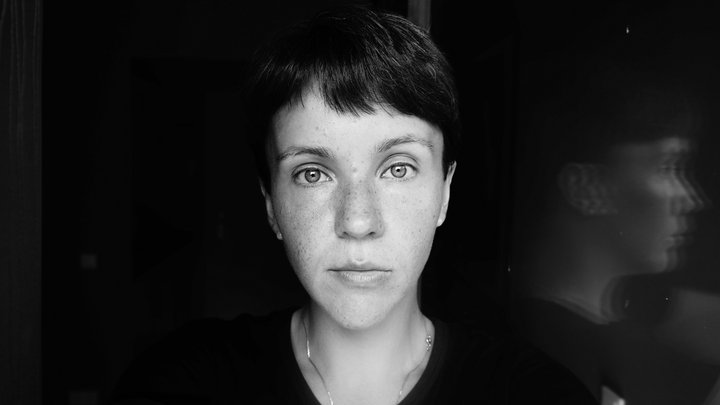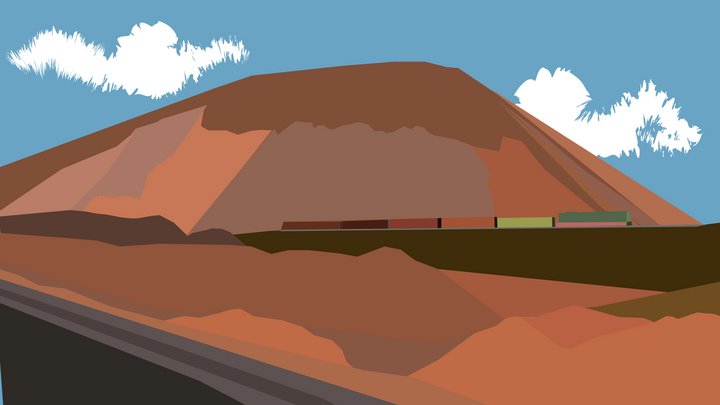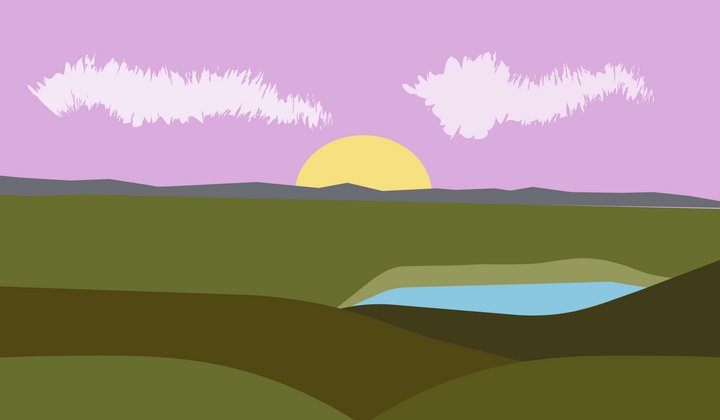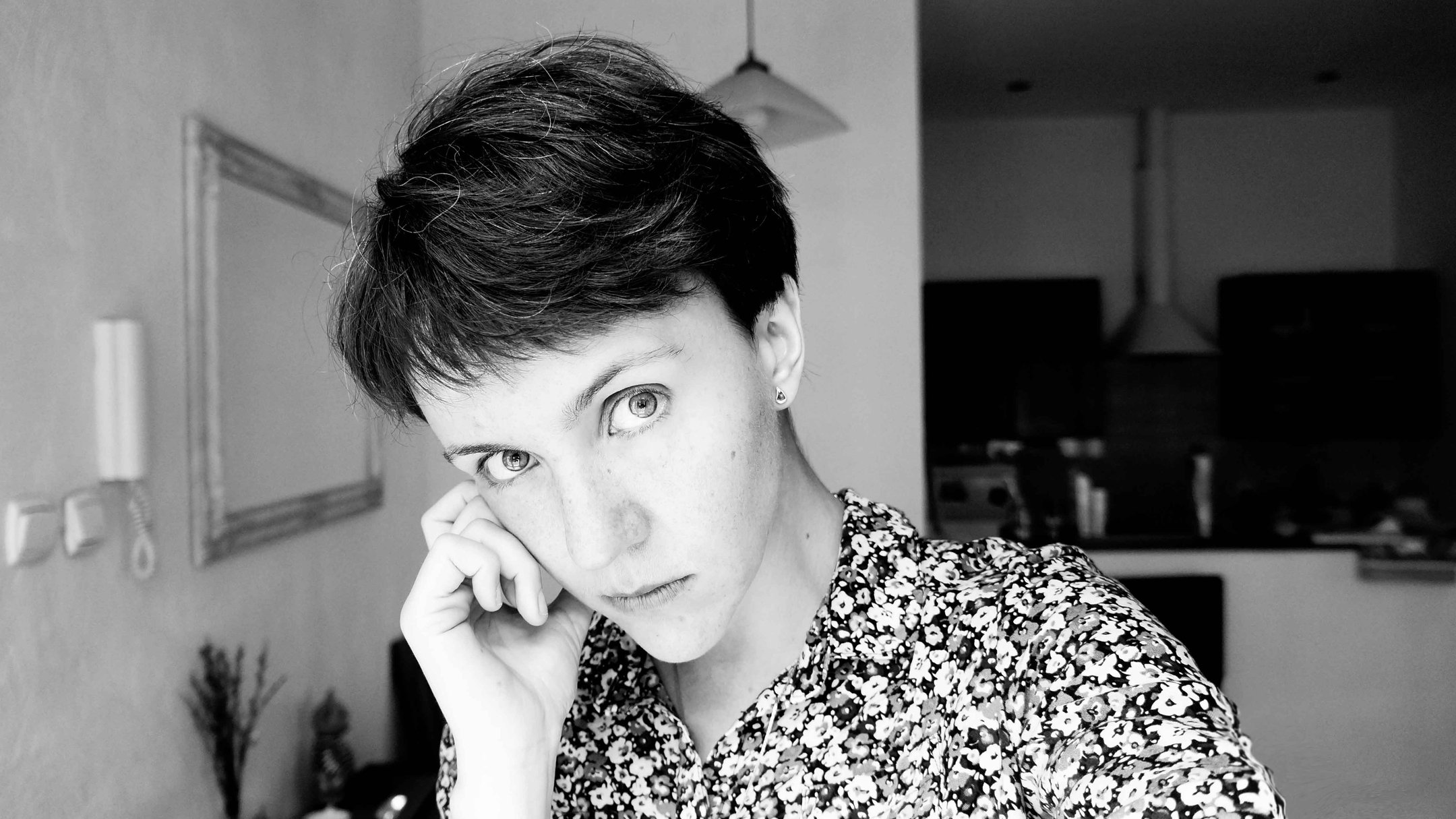In one of your previous interviews, you mentioned that “in our time, poetry stitches everything together like a surgeon.” How does poetry work today?
If we return to this metaphor, Ukrainian poetry continues to work like a field surgeon without sleep or breaks. However, it seems to me that it can’t keep up, nor can it save everyone. People are dying. Reality is dying. Words are dying. Literally, metaphorically, over and over again. And Ukrainian poetry today closely resembles Ukrainian reality: it works at the edge of its capabilities, but catastrophically fails to meet all the demands "needed yesterday." Typically, to write, you need time to build an emotional and reflective distance from the reality you’re writing about. But we don’t have this time, nor do we have the emotional resources or peace of mind. Russia is destroying Ukraine at lightning speed, and literature reacts to Russian death with the speed of thunder. Let’s also talk about the body of Ukrainian reality. All its seams are constantly coming apart because the war keeps hitting them over and over.
Moreover, poetry today has so many new specialties and functions that I’m afraid discussing them would exceed the limits of any journalistic format.

Ukrainian poetry today is a scream. A scream as presence, a scream as resistance, a scream as an attempt to throw words into the voracious maw of war, words that will make it choke. Although this scream is also addressed to those who silently watched as today’s Russia turned into a fascist state starting from the Russo-Chechen wars and allowed this to happen, as well as to those who, like in the film The Zone of Interest, pretend not to hear what is happening beyond the borders of their seemingly peaceful world. At the same time, it is also a decolonial scream at the empire, a scream of freedom.
Ukrainian poetry today is a painkiller. It ranges from drotaverine to morphine. I’m not sure our pain can be reduced right now, but at least temporary relief or the ability to take a breath is something poetry can definitely provide.
Ukrainian poetry today is an evangelist describing the crucifixion of the body of Ukrainian reality. Sometimes I catch myself thinking that we are all writing about the same thing, like in the Bible, but here is the Gospel of Matthew, here is the Gospel of Luke, here is the Gospel of Victoria Amelina, here is the Gospel of Maksym Kryvtsov. And then there are the Acts and Epistles of the Apostles.
Ukrainian poetry today is a court trial transcript. It records events from the perspective of Ukrainian identity and historical subjectivity.
Ukrainian poetry today is an incessant declaration of love. Love for Ukrainian land and all the living and nonliving things that exist on it. And when, after another information campaign, Ukrainian authors are accused of militancy, I always want to respond that only love is worth fighting for. In the end, this love is all we have.
Ukrainian poetry today is the opportunity to feel alive, to reclaim the ability to feel, which is blocked by trauma that always comes with numbness and paralysis. In this sense, Ukrainian poetry today is also a resuscitator.
Ukrainian poetry today is the mapping of a world where, if we speak in colonial terminology, Ukraine has moved from the margins of empires to the center, from which the compass of history draws the blueprint of this new world.
Overall, Ukrainian poetry today reminds me of the heart of our country, and poems are the pulse of its wounded body.
I also see a distinction between how poetry is written in the rear and at the front. The poetry of the Ukrainian rear—primarily concerning women’s poetry—is filled with tragedy and constantly changes its tone, raising its voice higher and higher. Such high notes probably cannot be sustained by any coloratura soprano. After all, authors in the rear, on one hand, imagine what they do not see directly, and on the other hand, they communicate not only with an internal but also with an external audience.
When I read the poems of soldiers and paramedics, there is a lot of irony and self-irony of a kind that authors in the rear simply cannot afford themselves. People at the front see the hell of war at arm’s length and, conversely, lower the volume of their voice and soften their tone, as if shielding the rear from what they have actually experienced. As far as I can assume, they are also speaking to their comrades, and who among them needs to be told that you have seen hell? Everyone at the front has seen it.
Can poetry heal grief? Can grief be healed at all?
I’d rather not delve into psychological theory at the moment, but only death can free a person from emotions, and grieving is a difficult and prolonged process that aids in finding balance after mental trauma. Thinking that poetry or literature in general could heal grief is akin to thinking we could return to the reality of pre-February 24, 2022. It’s impossible. Unless humanity somehow invents a magic pill to eradicate war and violence altogether.
In this context, I always cite the example of Poland. Today, almost 85 years after World War II, when I walk into any Polish bookstore, I see new editions of books about the war. Should we consider that Polish society has healed from this trauma, or not yet? And how exactly do we measure this? Speaking about Ukrainians is particularly difficult because, as of now, we have had war in at least six consecutive generations.
It seems to me that Ukrainian poetry today is more like a mirror in which one can see a distorted body, blood, broken limbs, festering and unhealed wounds, as well as a completely unfamiliar face instead of one’s own, and at least begin to realize that this is how we all look now. And it’s good if it’s only on the inside. Then we must learn to look into this mirror every day.
The experience of war is a scar across the entire face. It simply leaves no chance to avoid retraumatization for the rest of the life of anyone who has lived through it.

In your texts, you often describe the sensation of war through bodily imagery, such as writing about grief as vomit. It’s as if this is a rejection of violence, an attempt to refuse it in this way. War has indeed become very physical, and violence physiological. It affects our movements, our perception of sounds and space. Tell us about these images and metaphors—how do they coexist with the idea of resisting violence?
War is an extreme violation not only of national borders but also of personal boundaries. It enters our bodies, manifesting in diseases and psychosomatic reactions it causes, it enters our thoughts, changing our perception of time, our ability to concentrate, and perform ordinary daily tasks. I haven’t had time to explore this in depth, but even at the level of self-description, people often say after another Russian shelling of a Ukrainian town,"My heart aches for Kharkiv," "For Dnipro," For Odesa." The space outlined by Ukraine’s state borders established after 1991 is truly felt as a collective body, and when it’s being destroyed, it always feels like your own body is being shelled.
As for the metaphor of vomit, it is one of the most obvious. Any woman knows that after at least an attempted rape, you feel nauseated. War is the same kind of rape, only scaled to a collective experience that Ukrainians are living through as a community. The desire to vomit it out is a simple desire to survive. Would I and other Ukrainian authors prefer to write about something else? I think so. But we have to do it, we have to vomit out this omnipresent poison of war to cleanse the space of our existence for love.
Overall, writing for me is a way to understand what I’m feeling. Perhaps that’s why there are so many bodily metaphors in my poems. This is how I try to build a connection between my emotions, my body, and the reality that causes these emotions and bodily sensations. With the full-scale invasion, it’s as if I’m constantly asking myself: where exactly do I feel the war, in what part of my subcutaneous layer? It’s as if by naming this place, I could crush the war like a cockroach. These bodily metaphors are an illusion that you can regain control over your life, find support within your own body, because war constantly knocks this illusion out from under you, like a hastily made little stool.
Perhaps these bodily metaphors are something like self-diagnosis. If you can name where and how it hurts, you might be able to find not only the weak spots in your body but also the places of strength, and that is already a promise of agency. Even if all your mental and physical movements are distorted by the war.

This year marks ten years since the start of the war, ten years since you lost your home. How does this loss feel today? How does it affect your work with words?
When I learned in December 2022 that my home in Donetsk had been damaged by missile fragments, right on the side of my apartment, and that strangers would enter it because, among other things, the radiators were damaged and the entire building was left without heating, I felt nauseated for two weeks. You see, we keep returning to the correlation between the body, thinking, and expressing oneself. It felt like a violation, as if you were first beaten and then entered without your consent.
My home—that is, my home in Donetsk—is like a chronic illness that, at times, doesn’t bother me at all, but during flare-ups exhausts me with pain and drains all my strength. And you never know when this flare-up will occur. The loss of my home is the place of my greatest vulnerability, the Achilles’ heel that I constantly limp on. But I’ll say this: if to save the life of even one Ukrainian soldier, my home must be destroyed, I wouldn’t regret it for a minute. My pre-war home in Donetsk, like pre-war Donetsk itself, can never be returned to me.
As for working with words, the theme of homelessness and a whole slew of questions about home, both external and internal, is like slavery to me: I constantly feel its chains on my hands and feet. I’m tethered to it like Sisyphus to his stone. And this imprisonment is lifelong—I don’t know if I’ll ever manage to escape from it. Sometimes it seems to me that I’ve built a whole system of defensive structures that separate me from questions about home, but then I hear just one phrase like “I believe Donetsk should have been given away” and suddenly, all those structures appear to be not fortifications but rather a simple cardboard house that’s childish, laughable, and clumsy.
On the other hand, the loss of home and the experience of forced displacement are a significant part of my identity. This is who I am. But my experience is not unique overall. Many people around the world have been forced to become war or political refugees, displaced persons, immigrants, or migrant workers, not to mention natural disasters, fires, and other circumstances that can deprive one of a home. So when I write about myself, I also write about others, and this helps build chains of solidarity and empathy with people from very different cultural, political, and geographic landscapes.
For example, at the beginning of the full-scale war, I received a letter from a Mexican author who wrote that she understood me very well because she had to flee due to the drug wars and had been living in another country under a false name for ten years. Ukraine and Mexico seem worlds apart, don’t they? But there’s so much violence, grief, and injustice in the world, and when we articulate this experience, we feel that we’re not alone in it, and the opportunity to share our experience with others, or even differently, is always about dialogue, understanding, and finding common ground, which in turn is the guarantee of resistance, change, and effectiveness.
What is home for you today?
To be completely frank, I haven't seen a place for myself in reality since 2014. I guess we have to admit that at the beginning of the Russian-Ukrainian war, I failed the socialization test that life forces every person to pass, and I'm unlikely to be able to pass it again. It's like constantly feeling like the new kid in class. But after the full-scale invasion, I decided to finally accept this defeat.
I remember one day in Lviv, I felt this more than clearly. Whether I’ll have a home or not, whether I’ll feel at home or not, is irrelevant to me—the important thing for me is whether Ukraine will exist. A country where I can freely say “Glory to Ukraine” and hear in response “Glory to the Heroes!” Any thoughts about home for me are not timely now; what’s timely is supporting the Ukrainian army.
The feeling of home as a certain ownership of a particular architectural structure has lost its meaning for me. It’s akin to losing the ability to smell, which many people experienced during the COVID-19 epidemic. And it must be said that the feeling of home is often provided by smells and tastes both within the building where you constantly live and as signs of a particular landscape. The closest reminder of home in occupied and annexed Donetsk are the smells and landscapes of the occupied and annexed steppe Crimea.
However, lately, I’ve been increasingly pondering how the very concept of “at home” has shifted from the realm of private and enclosed space to the public space, a space that can be shared with others. For example, the thought “I’m at home” always comes to me when I return from a performance abroad and see the huge sign that reads “Ukraine” at the Polish-Ukrainian border. Or when I hear Ukrainian language anywhere. Or when I enter a volunteer center in Lviv for supplies. Not when I return to the dwelling I currently rent, though.
Everything else is literature. A desperate search for metaphors that could fill the void in place of the word “home.” Running in place. Trying to catch the fleeting bird of this feeling, which sometimes appears literally for a moment and then immediately flies away elsewhere. Sometimes this feeling is embodied in my orchid Maria, which I named in honor of Prymachenko. Sometimes it's in brief conversations where friends and acquaintances suddenly reveal their vulnerability, and you marvel at how similar we are in this vulnerability, which we constantly hide behind masks on social media. Sometimes it's in the huge map of Ukraine in the apartment of the Polish translator Aneta Kaminska, where Ukraine is not yet marred by war, occupation, and annexation.
Text originally published (in Ukrainian) by Suspilne Kultura as part of a collaboration with Documenting Ukraine.
Translated by Kate Tsurkan

